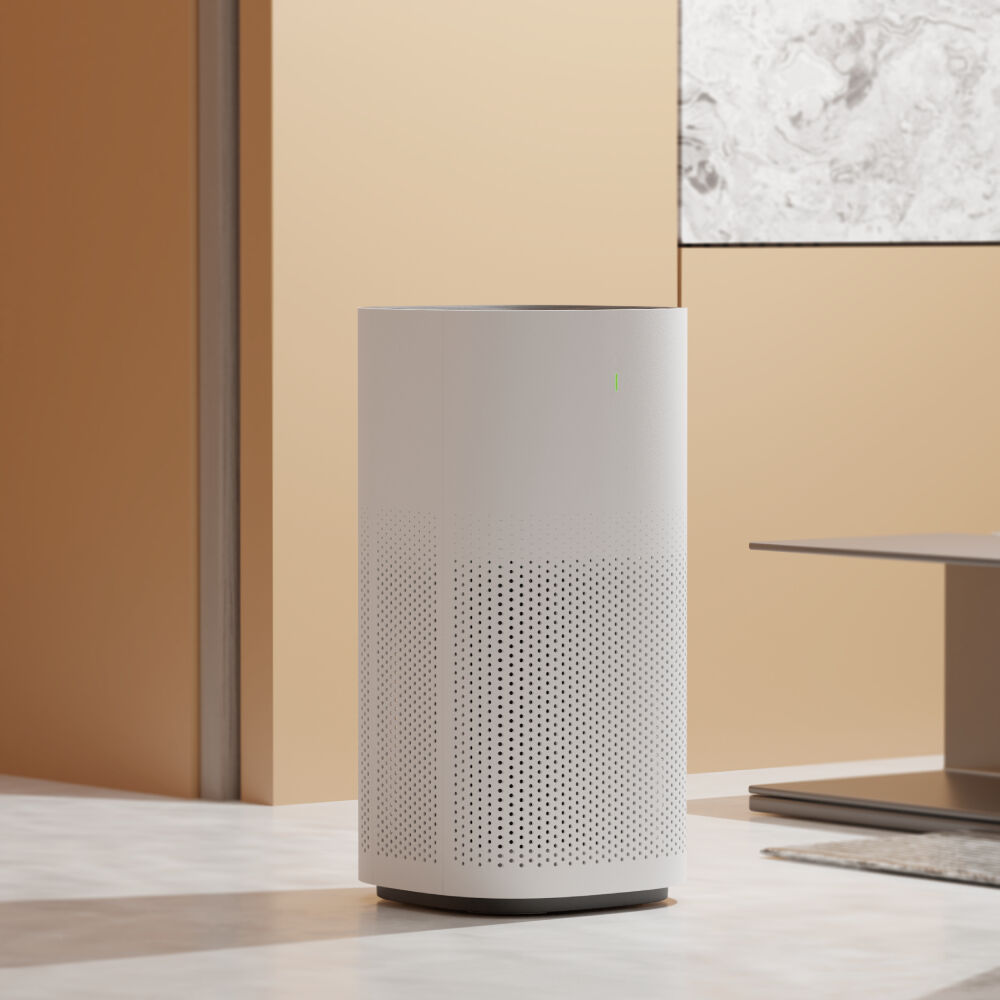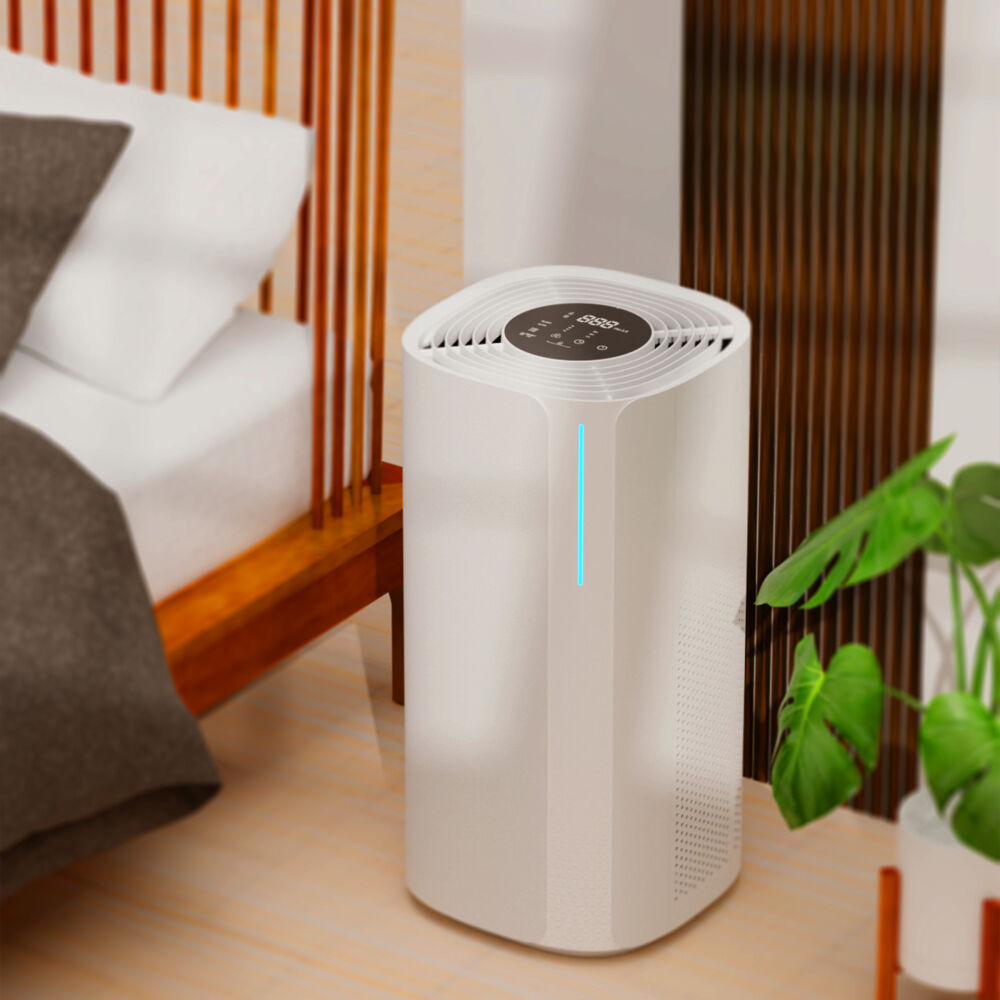How Does Air Purifier Technology Improve Air Quality
The growing demand for cleaner indoor air
As urban environments expand and pollution levels rise, more people are realizing the importance of maintaining cleaner indoor spaces. An Air Purifier has become a vital tool for ensuring healthier living conditions by targeting invisible pollutants that cannot be handled by ventilation alone. The ability of an Air Purifier to capture dust, pollen, mold spores, bacteria, and harmful gases makes it an essential household or office addition. Cleaner air not only supports physical health but also enhances comfort, productivity, and overall quality of life.

Core functions of an Air Purifier
Removal of airborne particles
One of the primary roles of an Air Purifier is filtering airborne particles such as dust, pollen, and pet dander. By trapping these allergens, an Air Purifier reduces common triggers for asthma and allergies.
Elimination of harmful pollutants
An Air Purifier also tackles pollutants like volatile organic compounds and smoke, ensuring that harmful gases are significantly reduced within indoor spaces. This creates a cleaner and safer environment for daily living.
Health advantages of using an Air Purifier
Improved respiratory health
Consistent exposure to airborne contaminants can lead to breathing difficulties. By removing pollutants from the air, an Air Purifier helps protect the lungs and supports better long-term respiratory health.
Allergy and asthma relief
For allergy sufferers and individuals with asthma, an Air Purifier reduces symptom flare-ups. Cleaner indoor air can mean fewer irritations and a more comfortable lifestyle.
Comfort and lifestyle improvements with an Air Purifier
Odor reduction in living spaces
Unwanted smells from pets, cooking, or cigarette smoke can linger in enclosed spaces. An Air Purifier with carbon filtration technology neutralizes odors, making the atmosphere fresher.
Better sleep quality
Poor air circulation and pollutants can interfere with sleep. With an Air Purifier operating, individuals benefit from cleaner air, leading to more restful and uninterrupted sleep.
Technological innovations in Air Purifier design
HEPA filtration systems
A modern Air Purifier often includes high-efficiency particulate air (HEPA) filters capable of trapping up to 99.97% of particles as small as 0.3 microns. This ensures that microscopic pollutants are effectively removed from indoor spaces.
Smart connectivity and sensors
New Air Purifier models feature smart sensors that track real-time air quality. These sensors adjust the filtration speed automatically, providing efficiency without requiring constant user input.
Air Purifier benefits in family environments
Protection for children and elderly
Children and older adults are particularly vulnerable to poor air quality. An Air Purifier reduces their exposure to allergens and pollutants, helping protect immune and respiratory health.
Safer environment for sensitive individuals
For people with compromised immunity, an Air Purifier can offer essential protection against harmful airborne contaminants, adding a layer of defense to the home environment.
Air Purifier in office and commercial use
Enhanced workplace productivity
Cleaner indoor air contributes to fewer respiratory problems and less fatigue, allowing employees to stay focused. An Air Purifier helps create a healthier working atmosphere that supports performance.
Reduced spread of airborne germs
In shared office spaces, bacteria and viruses can travel through the air. An Air Purifier reduces this risk, promoting a healthier workplace for teams.
Environmental considerations of Air Purifier use
Contribution to sustainability
Energy-efficient Air Purifier designs support sustainable living by reducing power consumption while maintaining high levels of filtration. This makes them a valuable addition for eco-conscious households.
Reduction of indoor pollution sources
By removing pollutants before they accumulate, an Air Purifier helps prevent long-term buildup of dust and chemicals on household surfaces, supporting a healthier living environment.
Choosing the right Air Purifier
Matching size and capacity to the room
Effectiveness depends on selecting the right Air Purifier for the space it is intended for. Larger areas require higher capacity models to circulate and filter air adequately.
Maintenance and filter replacement
Keeping an Air Purifier efficient requires regular cleaning and timely filter replacement. Considering maintenance needs is an important factor in long-term performance.
Long-term value of an Air Purifier
Cost savings on healthcare
By reducing allergens and contaminants, an Air Purifier can help minimize medical visits and costs related to respiratory conditions, proving its value over time.
Preservation of furniture and electronics
Cleaner air means less dust and pollutants settling on electronic devices and furniture. An Air Purifier helps extend the lifespan of valuable items in the home.
FAQ
How often should an Air Purifier be used
An Air Purifier can run continuously, as most models are designed for long-term operation and include energy-efficient modes for daily use.
Do Air Purifiers remove viruses and bacteria
Yes, many Air Purifier models with HEPA filters and UV or ionizing technology can reduce bacteria and viruses in the air, improving hygiene indoors.
Are Air Purifiers noisy during operation
Modern Air Purifier designs often feature quiet modes, allowing them to run silently during sleep or work hours without disruption.
Can an Air Purifier replace ventilation
No, an Air Purifier complements but does not replace natural ventilation. It works best alongside fresh air circulation for a healthier environment.
Table of Contents
- The growing demand for cleaner indoor air
- Core functions of an Air Purifier
- Health advantages of using an Air Purifier
- Comfort and lifestyle improvements with an Air Purifier
- Technological innovations in Air Purifier design
- Air Purifier benefits in family environments
- Air Purifier in office and commercial use
- Environmental considerations of Air Purifier use
- Choosing the right Air Purifier
- Long-term value of an Air Purifier
- FAQ

 EN
EN
 AR
AR
 NL
NL
 FR
FR
 DE
DE
 EL
EL
 HI
HI
 IT
IT
 JA
JA
 KO
KO
 PL
PL
 PT
PT
 ES
ES
 ID
ID
 VI
VI
 TH
TH
 TR
TR
 MS
MS
